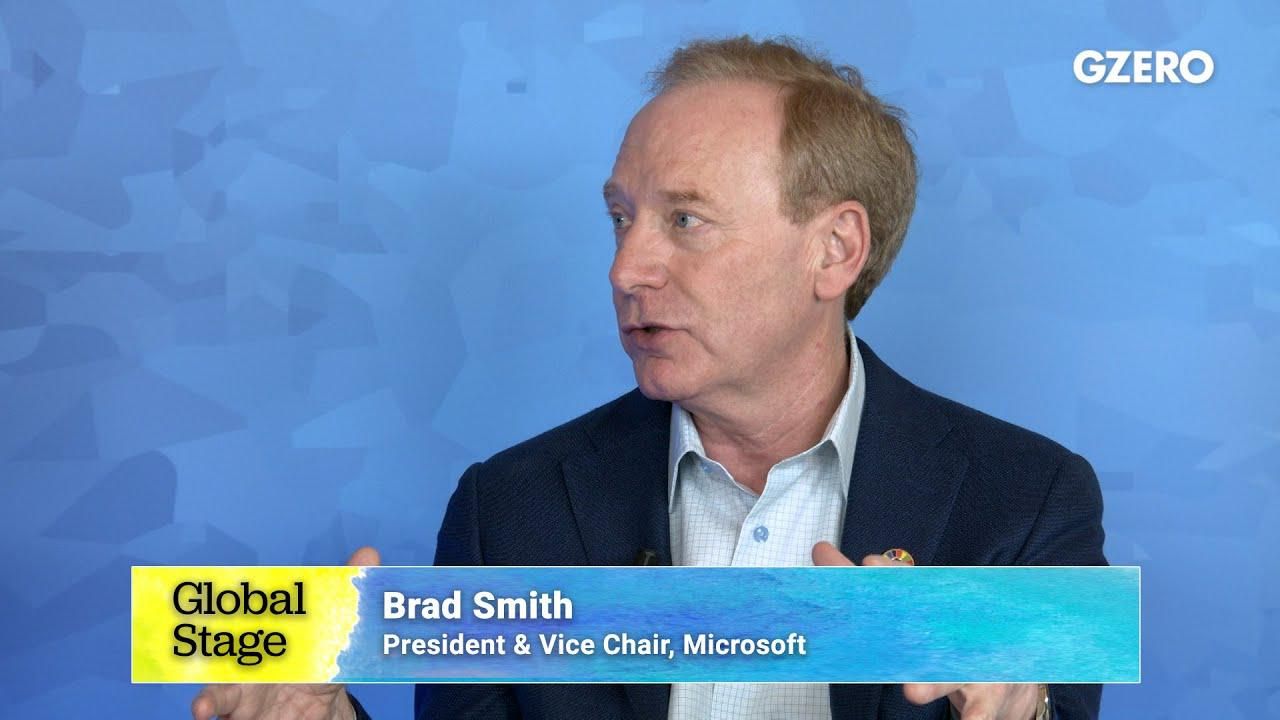Global Stage
Brad Smith: Russia's war in Ukraine started on Feb 23 in cyberspace

Russia’s War in Ukraine Started a Day Earlier in Cyberspace | Microsoft's Brad Smith | Global Stage

Weeks before Russia invaded Ukraine, Microsoft was already helping the Ukrainians defend their cyberspace against Russian hackers, for instance by moving the government's physical servers into the cloud to avoid destruction by Russian missiles.
In the virtual world, like on the battlefield, "you've gotta disperse your defensive assets so they're not vulnerable to a single attack," Microsoft President Brad Smith says in a Global Stage livestream discussion at the World Economic Forum in Davos, "Crisis in a digital world," hosted by GZERO in partnership with Microsoft.
Then came defending Ukraine against Russian cyberattacks.
In cyberspace, Smith says the war really started on February 23, a day before Russia's land invasion, when Microsoft noticed some 300 coordinated attacks trying to take down Ukrainian government websites and banks via Microsoft's own data centers in Seattle.
Still, it worked. Why? Because "so far in this war, defense has proven to be stronger [than] offense, frankly, in almost every category, but especially when it comes to cyberspace."
Watch more of this Global Stage discussion: "Crisis in a digital world"
How widely is AI actually being used, and where is adoption falling behind? Speaking at the 2026 World Economic Forum in Davos, Brad Smith, Vice Chair and President of Microsoft, outlined how AI adoption can be measured through what he calls a “diffusion index.”
AI adoption is accelerating worldwide, but “diffusion” isn’t just about who has the best models. It’s about who has the basics: affordable power, reliable connectivity, and the skills to actually use AI. In a new GZERO Media Global Stage livestream from the 2026 World Economic Forum in Davos, Switzerland, CNN’s Richard Quest moderates a clear-eyed discussion on what it will take to broaden AI access, and what happens if the gap widens.
Now that we are all on same page. #PUPPETREGIME